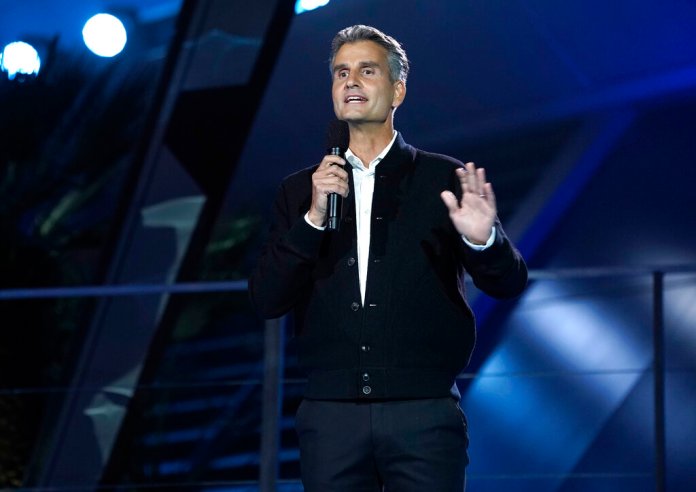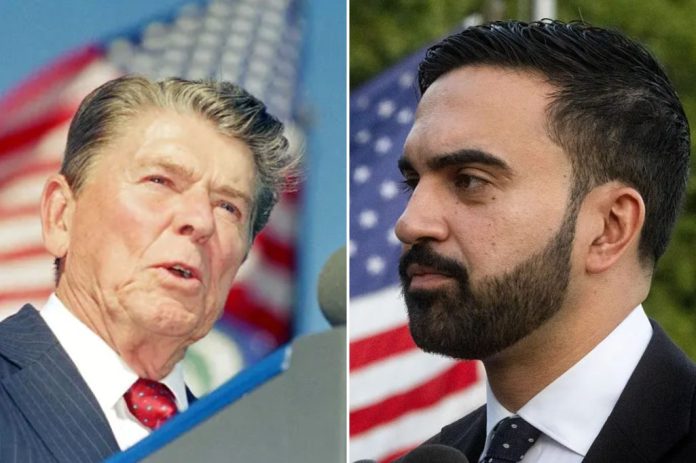Paul Newman at 100 – Washington Examiner
The article “Paul Newman at 100” reflects on the legacy of actor Paul Newman, who would have turned 100 on January 26, 2025. Newman is portrayed as an actor who gracefully aged in Hollywood, a stark contrast to many of his contemporaries who struggled with the passing of time and the industry’s focus on youth. The author notes that Newman seemed indifferent to the physical signs of aging, embracing his greying hair and the lines on his face, which added a certain gravitas to his performances.
The piece highlights notable moments in Newman’s career, such as his role in “Butch Cassidy and the Sundance Kid,” where he showcased a confident, seasoned presence compared to younger actors like Robert Redford. Despite some early struggles in his career, including films that failed to utilize his talents, Newman eventually found success during the New Hollywood movement of the 1970s, taking on more complex and mature roles.
Newman’s ability to age artistically was bolstered by the loosening of Hollywood standards, allowing him to embody the wisdom and experience of his characters, as seen in films like “The Sting” and “Slap Shot.” the article celebrates Newman not just for his accolades, including an Oscar and nominations for significant awards, but moast importantly for how gracefully he navigated the challenges of aging in a youth-centric industry.
Paul Newman at 100
The bar for actors aging gracefully in Hollywood is not particularly high. Many legends have tried and failed. Against his better judgment, Cary Grant consented to appear opposite the far-younger Audrey Hepburn in Charade, and against all standards of common decency, Burt Reynolds attempted to prolong his fading stardom by donning a toupee. By contrast, Paul Newman gave every impression of being utterly indifferent to his gray, later white, hair, the lines that came to mark his face, and the gravitas that accompanied middle and old age in an industry forever dominated by whippersnappers. Newman, who would have turned 100 on Jan. 26, won an Oscar, was nominated for a Tony, was half of one of the most well-built marriages in Hollywood, and induced millions of people to buy movie tickets. But his greatest accomplishment is how willingly and agreeably he aged on camera.
This is partly down to how ageless he had been for decades. In 1969, when he made Butch Cassidy and the Sundance Kid, Newman was 44 years old. But, next to his tow-headed co-star, Robert Redford, he carried himself with the authority of someone at least in his early 50s. In a famous scene in which the outlaws contemplate leaping from a cliff to preserve their hides, Newman erupts with laughter at Redford’s reluctant revelation that he can’t swim with the seen-it-all sangfroid of an older man: “Are you crazy? The fall will probably kill ya!” Throughout the film, Redford comes across as mindful of how he looks and prideful of his period-inauthentic hair, while Newman appears flippantly grizzled. Memo to guys everywhere: This is the way to be.
Born in 1925 in Shaker Heights, Ohio, Newman did not arrive at this state of manly composure and competency overnight. In fact, having forsaken his “method acting” schooling and a promising Broadway career for the fortune and glory of Hollywood in the 1950s, Newman was not well served by the studio bosses of the era. In the first decade or so of his screen career, Newman had to soldier through the facile biopic The Helen Morgan Story (1957), the arduous romantic comedy Rally Round the Flag, Boys! (1958), and the strained literary adaptation of Hemingway’s Adventures of a Young Man (1962). In fairness to his betters, the “young man” himself was part of the problem: Even in his early successes, such as The Long, Hot Summer or Cat on a Hot Tin Roof, both from 1958, Newman had a certain wax museum-like countenance — like John Gavin with better acting chops.
Even the opportunity to work at the feet of Alfred Hitchcock, when it came, ended in frustration. Much to the Master of Suspense’s chagrin, Newman flinched from Hitchcock’s attempt to use him as a cardboard cutout in the otherwise stylish 1966 spy thriller Torn Curtain. “As you know,” Hitchcock told Francois Truffaut, “he’s a ‘method’ actor, and he found it hard to just give me one of those neutral looks I needed to cut from his point of view.” In a perceptive essay on the actor in his Biographical Dictionary of Film, critic David Thomson wondered: “Could it be that Newman was always uncomfortable with his natural assets — such handsomeness — and never convinced by them?” For Thomson, Newman’s efforts to break free from matinee-idol-dom was expressed in the actor’s earnest but self-serious directorial films — including starring vehicles for his beloved second wife, Joanne Woodward, Rachel, Rachel (1968) and The Effect of Gamma Rays on Man-in-the-Moon Marigolds (1972). But ultimately what ailed Newman could only be solved with the passage of time.
In the late 1960s and into the ’70s, Newman benefited unquestionably from the loosening of standards that accompanied the New Hollywood movement and the concurrent arrival of his own middle age. In Butch Cassidy, Newman practically lorded his seniority over Redford, a dynamic that was happily revived, four years later, with the vastly popular The Sting: Here, Newman played drunken, dissipated con Henry Gondorff who nonetheless possesses skills and experience that easily best those of his fresh-faced junior initiate Johnny Hooker (Redford). In one of the all-time great scenes, Newman attempts to draw the ire of their mark Doyle Lonnegan (Robert Shaw) by intentionally mangling Lonnegan’s name and using his necktie to clear his sinuses during a poker game.
Yet Newman was not merely sending up his own elegant persona. Butch Cassidy, The Sting, and the subsequent Slap Shot, from 1977, an electrifyingly profane hockey movie, were essentially comedies, but Newman increasingly committed himself to dramatic parts that called for actors over a certain age. In Sidney Lumet’s The Verdict (1982), Newman starred as Frank Galvin, a volcanically flawed Boston attorney who lucks into a winnable medical malpractice case. The film’s overriding question is not whether Galvin will win or lose but whether the attorney, a marginally functional alcoholic, can steady his hand while taking a drink or pull himself together for a cross-examination. Around the same time that Newman was making The Verdict, the former Sundance Kid was preparing to embark on two more past-his-prime romantic-lead roles: Legal Eagles and Out of Africa. Need we say more?
The years continued to roll on, and Newman continued to roll with them. As a sequel to The Hustler made a quarter century later, The Color of Money, from 1986, was Butch and Sundance all over again: Newman, the elder pool shark, and Tom Cruise, the greenhorn. Newman, awarded his first and only competitive Oscar for this performance, could have continued in this mode — everybody’s favorite older brother. But, astonishingly, he did not flinch from aging into an actual senior citizen. In 1990’s Mr. and Mrs. Bridge, director James Ivory’s lovely adaptation of novels by Evan S. Connell, Newman and Woodward played longtime marrieds whose lapses into boredom or discontent were outweighed by the duty, habit, and devotion built up over a lifetime — a testament to the real-life couple’s enduring ties.
Under the always-poetic direction of Kramer vs. Kramer’s Robert Benton, Newman honed his surliness (1994’s Nobody’s Fool) or infirmity (1998’s Twilight). In the latter, a nifty film noir, Newman, resplendent in a pink Polo shirt and khaki pants, turns away from Susan Sarandon as she exits her Los Angeles swimming pool au naturel, a sign of his gentlemanliness and an acknowledgment of his elderliness. In his last great part, in the 2002 Depression-era crime drama Road to Perdition, Newman was notable for being the only performer to credibly suggest the film’s setting. Making up for his deferred theater career, Newman got his Tony nomination for appearing as the stage manager in a 2002 Broadway production of Our Town.
Newman’s Own, the actor’s brand of all-profits-to-charity foodstuff, may seem like just the sort of lame venture that would be all too popular with his baby boomer fan base: Buy frozen pizza or ranch dressing and feel good about it! Yet Newman retained a sense of wily self-deprecation even about this enterprise, as when he appeared, late in his life, on David Letterman’s talk show and was presented by the host with a fake container of what is purported to be “Newman’s Own Low-Fat All-Weather Antifreeze/Coolant.” In the segment, Newman fixed his blue eyes on the mockup and said, inimitably, “Well, I’m game if they are.”
In recent years, the Newman-Woodward marriage has birthed a cottage industry of ephemera: There was a photo book compiled by daughter Melissa and a documentary directed by, of all people, Ethan Hawke. Yet efforts to romanticize the couple’s early years tend to diminish Newman’s glorious second and third acts. When he died in 2008 at age 83, one imagines him as a tranquil man, at ease with the wisdom and nonchalance conferred by aging well. He did it more publicly than most, and better than nearly all of his peers.
Peter Tonguette is a contributing writer to the Washington Examiner magazine.
" Conservative News Daily does not always share or support the views and opinions expressed here; they are just those of the writer."




